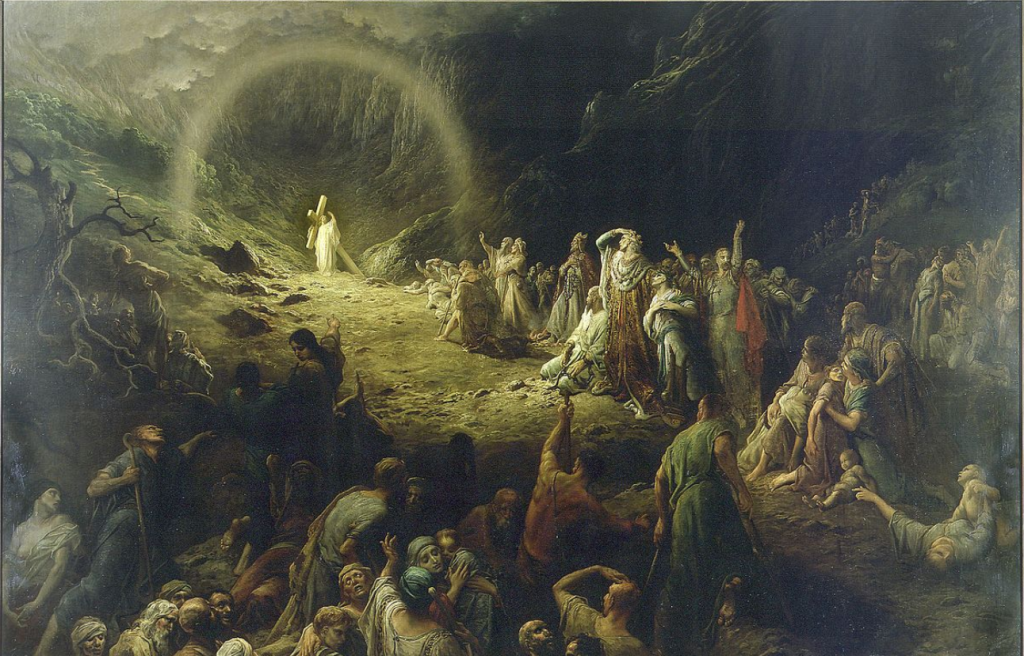All things considered, I think that I had a genuinely blessed childhood. I grew up in the lowest of the lower-middle class in Queens, NY, with two parents, a grandmother, an older brother, and an older cousin. Each summer, we would go upstate to the Catskills. There was a campground there—a trailer park—but I would like you to suspend your preconceived notions of what a trailer park is. It was like a community of summer homes in the mountains for city folk in an economic situation similar to my family’s. Each family had a designated plot of land to park their trailer. Everyone’s plot, or “site” as we called it, had a deck, a garden, and a fireplace. No two sites were the same – each was a unique expression of the family who established it. The Jamaican family had a grand fire pit and beautiful tiger lilies, the Polish family had ornate lattices, the Puerto Rican family had an elegant screened dining area, and the Italian family had a collection of frog statues all over the garden.
As kids, we would run around together from site to site, and every adult there watched over us. That campground was an oasis of trust and love in a world steadily growing in fear and isolation post-9/11. My family stopped going, and I grew into a young man. I visited it once more with a friend years after we stopped going. My friend was a good guy, but in hindsight, our companionship was based on a mutual jaded cynicism; we went back for a lark. As such, the visit took on an unfavorable color. Between the emptiness of the place and the ruin it had fallen into, my friend was not incorrect in saying that it felt “haunted, like a graveyard.”
It’s interesting how much a child’s eye changes as it passes into adulthood. It’s no wonder that Our Lord tells us that we must “become like little children” to enter the Kingdom of Heaven. Sure, with maturity comes a vision that some may say is keener and wiser. As we age, our vision does not develop but instead degenerates.
We moved to a town in Queens called Maspeth. Maspeth is very unlike the city, although it is undeniably part of it. It’s in that no-man’s land of Western Queens that is geographically close to the bustle of Manhattan while being virtually unreachable by buses and trains. One end of town is all industrial, filled with warehouses and factories. The other end is all cemeteries with tall trees, rolling hills, and mausoleums. Between it all are buildings made of red brick that aren’t built more than a story or two high, allowing you to see big flocks of grackles or sparrows sweeping the heavens.
The skyline of Manhattan looms far off on the horizon, and its perspective gives the impression that the birds fly higher than the sky-scrapers. These things are called community drives, like unpaved alleyways filled with garages. Sometimes, big rose bushes are blooming within them. During springtime, the air in Maspeth smells earthy and sweet from the budding hedges. The odor resembles what Saint Hildegard of Bingen referred to when she talked about “Viriditas.” It was my world as a boy. While other places offered the ever-fleeting excitement of big city life, they often left more anxiety in their wake; Maspeth gave me peace.
But then I began to grow into adolescence. I started to consider myself much wiser and desire whatever was furthest from me at the time. I began despising Maspeth and wished to live in a suburb like Long Island. The houses were all bigger, the people had more money, and the schools were more like the ones you see on TV. It came to pass that my family had to move away when I was a teenager. We could not afford to live anywhere in the city, so we moved to a rural area a few counties above it. I did not take this well. I cried, I screamed, I sulked, I threatened suicide. I fought as hard, and about two years later, I moved back down into the city and have mostly lived therein since. However, I still cannot afford my beloved Maspeth. It is simply not possible for me to move there. I visit often, walk around, and breathe it in, but I cannot remain there any longer. I’m just too broke.
Moreover, the campground in the Catskills mentioned earlier has closed down. It is permanently out of business. Even if I wished to visit again with a more sentimental friend, I could not. These places are now gone, existing only in my memory, and I walk forward through time away from them. They grow more distant and unfamiliar with each passing day.
This Lent has kept me wondering: where is my home? I have lodged in many places, resided in lovely houses, and stayed with beautiful people. None of them feel like my home. I search my heart for where home might be and cannot seem to place it. Even Maspeth is not my home; I think it was never supposed to be. I examine it all, carefully stripping away nostalgia from the truth. I then see myself constantly out of place, contending with a mysterious yearning to return somewhere I can’t recall. This must be what the spiritual writers mean when they refer to the “Lacrimarum Valle” or “Valley of Tears.” To the saints, that’s what this life is: a low place filled with weeping that we are to sojourn through but not settle in.
You can find it explicitly referenced in Psalm 83 (please note I am referring to the Vulgate numbering; otherwise, it’s Psalm 84). There, the Psalmist writes:
“Blessed is the man whose help is from thee: in his heart he hath disposed to ascend by steps. In the vale of tears, in the place which he hath set. For the lawgiver shall give a blessing, they shall go from virtue to virtue: the God of gods shall be seen in Sion.”
Saint Augustine of Hippo wrote an incredible commentary on the psalm, and I suggest you read it in full. He notes that the Psalmist refers to an interior struggle between the desire for the things of this world and the things of the next. While the Psalmist clearly exalts the things of the next world, i.e., God Himself, he also acknowledges that we must struggle through this life to attain them. In this struggle, we are purified of these worldly desires and may run faster toward Heaven. Then, the Bishop of Hippo eloquently states, “We run not with the feet, but with desire.”
Furthermore, St. Augustine also directly links St. Paul’s famous discourse in the 7th chapter of his letter to the Romans, where he describes the conflict within himself between being given to sin and following the Law. That passage has been familiar to me and, at times, has been a great consolation, yet I was ignorant of its most profound meaning until I read it in the context of Psalm 83. Of course, we can, and we should lament over our own tendency toward rebellion. However, if we remain within our proud shame, we will miss the grace that is the very awareness of the rebellion itself. “He shall give blessing, who gave the Law.” The blessing we receive from the weepy awareness of this poverty is the ascension from “virtue to virtue.” Through this Lacrimarum Valle, we climb higher and higher in virtue and grow deeper in contemplating our One True Good.
You may have heard this term in the “Hail Holy Queen.” When we call out to the Blessed Virgin Mary, saying:
“To thee do we cry, us poor banished children of Eve, to thee do we send up our sighs, mourning and weeping in this valley of tears.”
Here, we are doing more than simply recognizing our fallen human nature. We ask her to assist with our ascent from virtue to virtue. Most of all, we acknowledge that we have a homeland that is not of this Earth, but instead in Heaven—we are acknowledging our homeland is with Our God.
In reflecting upon my dissatisfaction with where I call home this lent, for anyone who may be grappling with a similar feeling of listlessness or loss of agency, we need to look only to the cross and recall the words of Psalm 83: “I have chosen to be an abject in the house of the Lord rather than dwell in the tabernacles of sinners.” It’s hard to think of another verse that sums up the strenuous nature of the Christian life. And, as Miley Cyrus so astutely put it, “That’s why they call it the climb.”


